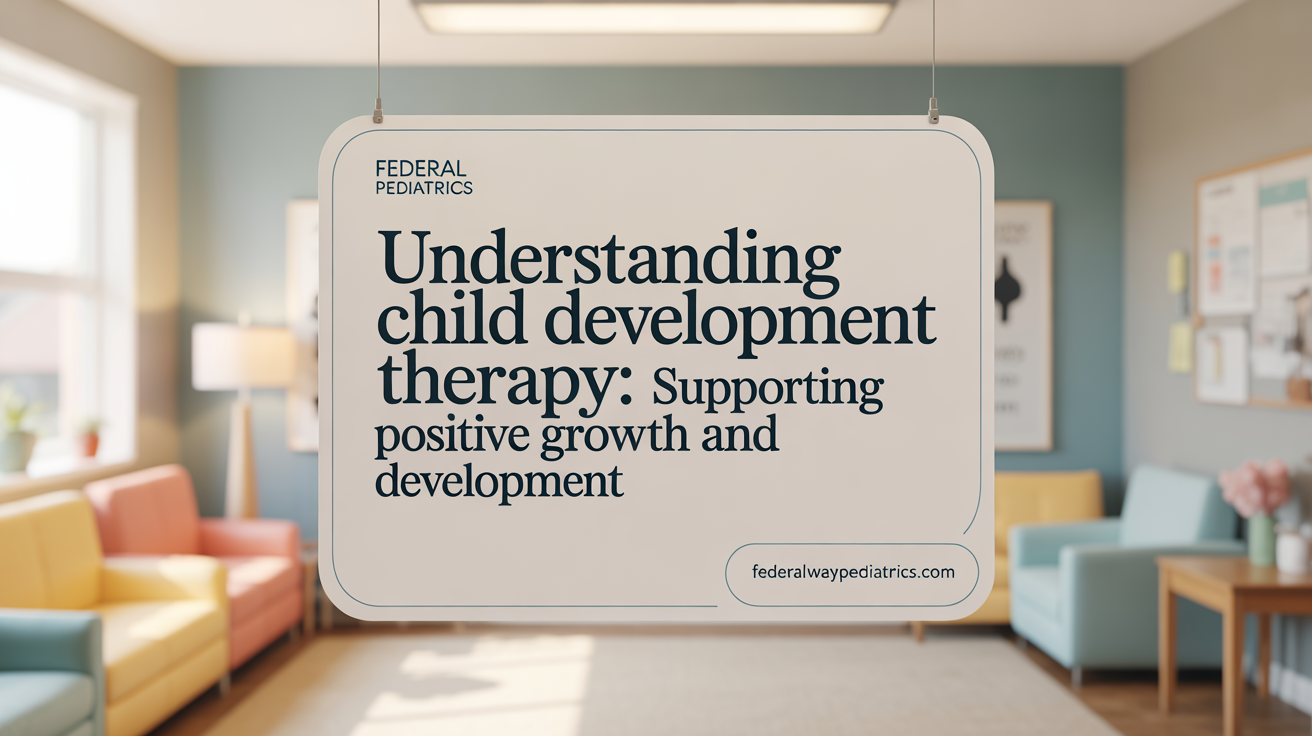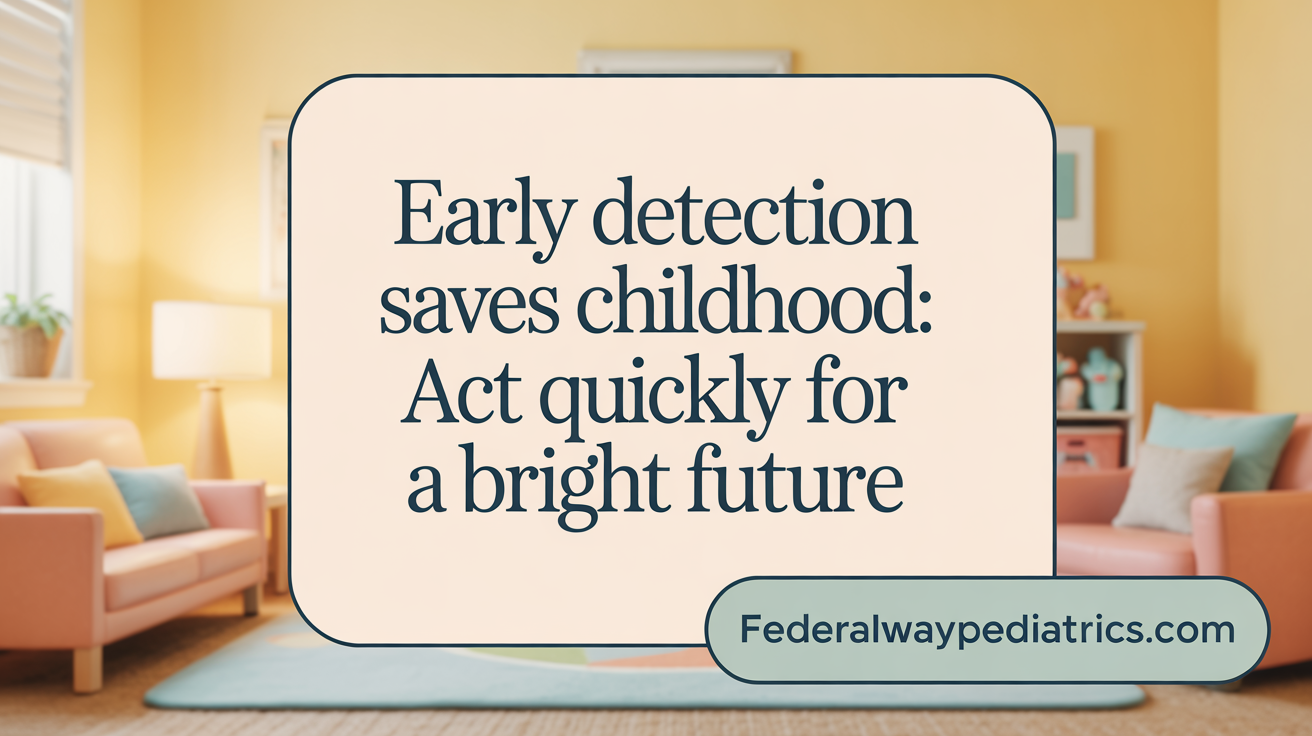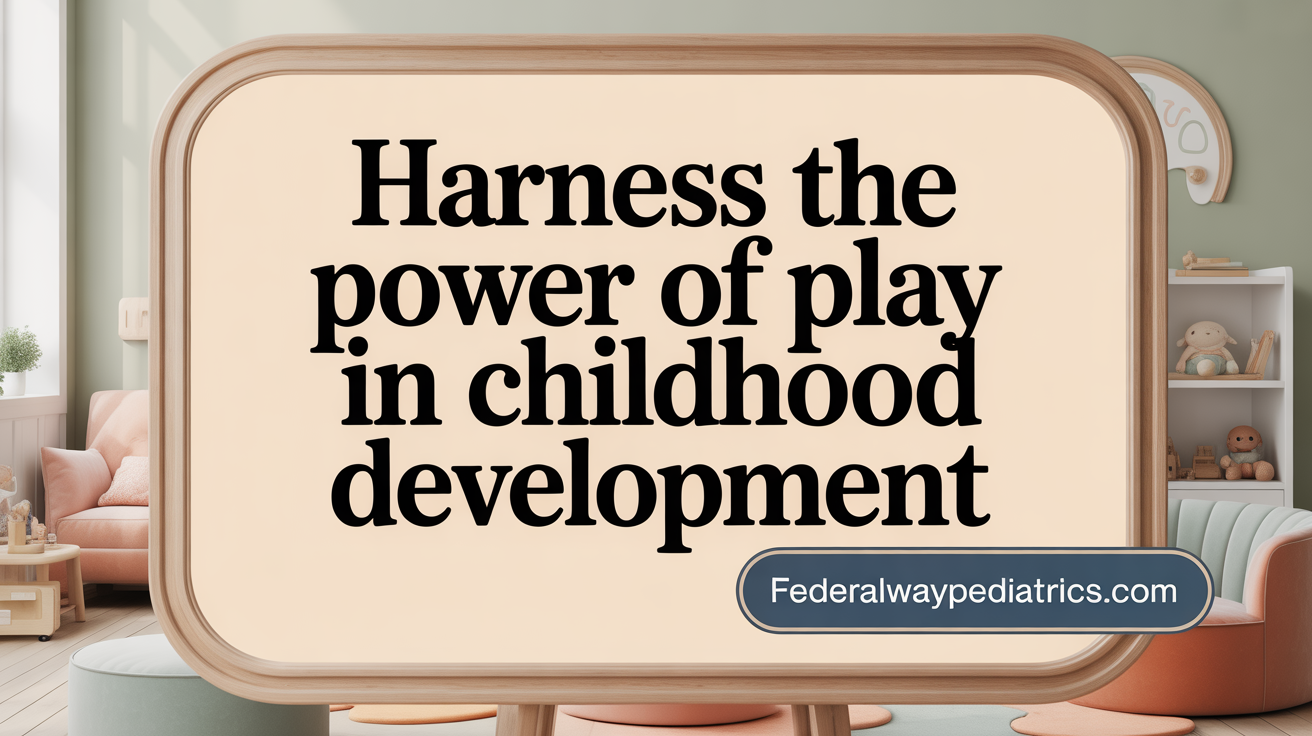Introduction to Developmental Therapies for Children
Developmental progress in children encompasses growth in physical, cognitive, social, emotional, and communication skills. When delays occur, targeted therapies play a vital role in supporting children to reach their potential and improve daily functioning. This article explores various therapeutic approaches designed to aid developmental progress, the importance of early detection, and how families can access these services to ensure their child’s success.
What is Child Development Therapy?
 Child development therapy, also called developmental therapy, is a specialized approach designed to support children experiencing delays or difficulties in reaching important developmental milestones. It focuses on various areas, including cognitive skills, language and communication, social-emotional growth, motor abilities, and physical development. The therapy aims to help children achieve better functioning and independence in daily life by encouraging growth in these areas.
Child development therapy, also called developmental therapy, is a specialized approach designed to support children experiencing delays or difficulties in reaching important developmental milestones. It focuses on various areas, including cognitive skills, language and communication, social-emotional growth, motor abilities, and physical development. The therapy aims to help children achieve better functioning and independence in daily life by encouraging growth in these areas.
An important part of child development therapy is its interdisciplinary approach. Teams often include developmental therapists, speech-language pathologists, occupational therapists, physical therapists, and behavioral specialists. These professionals collaborate closely and involve families in the process. They observe the child’s progress, tailor activities to the child's interests, and provide resources and guidance for home exercises.
Different treatment methods target multiple developmental domains. For example, therapies may encompass play-based activities to foster social skills and emotional regulation, motor exercises to improve coordination and strength, and language interventions to enhance communication. These therapies are often integrated into routines and play to make the learning process natural and engaging.
Overall, child development therapy supports children in overcoming challenges early on. It promotes physical, cognitive, emotional, and social well-being, helping children reach their full potential and gain skills essential for daily activities and future success.
Therapeutic Approaches That Support Developmental Progress
What types of therapies are commonly used for children with developmental delays?
Children with developmental delays often benefit from a combination of therapies tailored to their specific needs. The most common include physical therapy, occupational therapy, and speech and language therapy. Physical therapy focuses on enhancing gross motor skills such as walking, jumping, and balance, helping children develop strength and coordination. Occupational therapy targets fine motor skills, sensory processing, self-care skills, and overall coordination, enabling children to perform daily activities more independently. Speech therapy addresses language development, articulation, and communication challenges, often incorporating play-based activities to make learning engaging.
Behavioral therapies like Applied Behavior Analysis (ABA) are especially useful for children on the autism spectrum, helping improve social, emotional, and behavioral skills. Social skills therapy teaches children appropriate ways to interact and build relationships, while cognitive-behavioral therapy (CBT) helps older children manage emotional challenges. Early intervention services often combine these therapies to maximize developmental gains, with clinicians creating individualized plans based on thorough assessments. Medical support may also be part of treatment when underlying medical conditions affect development, emphasizing the value of a comprehensive, multidisciplinary approach.
What are some therapeutic approaches that support developmental progress in children?
Supporting a child's growth requires diverse and evidence-based strategies. Speech and language therapy play a critical role in enhancing communication skills, including language comprehension and social speech. Occupational therapy promotes sensory processing, motor skills, and daily self-care tasks, while physical therapy focuses on improving mobility, strength, and balance.
Early childhood special education plans are designed to foster development through tailored programs that emphasize play, social skills, and cognitive growth. Family training and active involvement are central, equipping caregivers with strategies and activities to reinforce therapy at home. Assistive technology, such as communication devices and adaptive learning tools, helps children overcome specific challenges and participate more fully in learning and social environments.
Creating inclusive settings that promote peer interactions and applying peer support techniques further enhance social participation. The integration of these approaches creates a supportive ecosystem that promotes holistic development, helping children reach their full potential and develop the skills necessary for independence and social integration.
Recognizing Signs and Milestones for Developmental Therapy

What are the signs and milestones that indicate a child may need developmental therapy?
Monitoring a child's growth involves paying close attention to specific developmental milestones that typically occur during infancy and toddlerhood. These milestones include physical, cognitive, social, and speech developments.
In infancy, key milestones include rolling over, sitting independently, babbling, responding to sounds, and eye contact. As children grow into toddlerhood, they usually walk independently, use words and gestures to communicate, engage in play, follow simple directions, and show increasing independence.
Signs that may suggest a child needs developmental therapy involve delays or atypical behaviors in these areas. For example, a child who is not reaching mobility milestones such as crawling or walking, or a toddler who isn't using words or gestures for communication, might have underlying challenges.
Other indicators include limited social interaction, poor eye contact, difficulty understanding instructions, and challenges with problem-solving or self-care activities like feeding or dressing. Behavioral issues such as excessive tantrums or withdrawal can also be signs.
Children showing delays across multiple domains—motor skills, speech, social interactions, or cognitive abilities—should be evaluated by healthcare professionals. Early identification and intervention are vital. Recognizing these early signs can lead to timely therapies that support development, helping children reach their full potential and improving long-term outcomes.
The Critical Role of Early Detection and Intervention

Why is early detection and intervention important for developmental delays?
Early detection and intervention are vital for supporting children with developmental delays because they take advantage of the brain's heightened plasticity during the earliest years of life. During this critical period, children’s brains are exceptionally adaptable, making it an ideal time to introduce therapies that promote neural growth and help bridge developmental gaps.
Identifying delays early allows specialists to tailor support services such as speech therapy, occupational therapy, physical therapy, and behavioral interventions to meet each child's unique needs. This personalized care can significantly improve areas like communication, motor skills, and social interaction.
Timely intervention helps prevent delays from worsening over time. It encourages children to achieve key developmental milestones at an age-appropriate pace, which fosters confidence, independence, and positive self-esteem.
Research shows that children who receive early support tend to perform better academically, develop stronger social skills, and experience fewer emotional and behavioral challenges later in life. The earlier a delay is recognized and addressed, the greater the likelihood of optimal long-term outcomes.
Overall, early intervention offers children the best chance to develop their full potential, set a foundation for successful learning and social relationships, and lead healthier, more independent lives.
Goals and Benefits of Developmental Therapies
 Developmental therapies focus on helping children develop essential skills needed for daily life and social participation. They aim to support progress in motor abilities, communication skills, cognitive functions, social-emotional development, and self-help competencies.
Developmental therapies focus on helping children develop essential skills needed for daily life and social participation. They aim to support progress in motor abilities, communication skills, cognitive functions, social-emotional development, and self-help competencies.
Through targeted activities and interventions, these therapies promote improvements across multiple areas. For example, occupational therapy works on fine motor skills, sensory processing, and self-care activities, while speech-language therapy enhances expressive and receptive communication. Physical therapy assists in developing gross motor skills such as walking, jumping, and coordination.
One of the main benefits of developmental therapies is increased independence. Children learn to perform daily tasks more confidently, which boosts their self-esteem and motivation. As they acquire new skills, their ability to participate in social situations improves, fostering better peer interactions.
Tailored plans are central to effective therapy. Each child's unique developmental stage, strengths, and needs are considered when designing intervention strategies. Developmental therapists collaborate closely with families, involving them in therapy activities and home exercises to reinforce learning and ensure consistency.
Early intervention is especially impactful because it leverages brain plasticity during early childhood. Initiating therapy within the first three years can lead to more significant long-term gains, including better academic preparedness, emotional regulation, and social skills.
In summary, developmental therapies aim not only to enhance specific skills but also to foster overall growth, confidence, and independence. They empower children to reach their full potential, supporting happier, more functional lives.
Play-Based Therapy and Accessing Support Resources

How does play and play-based therapy support child development?
Play and play-based therapy are fundamental tools in promoting a child's growth across multiple domains. They provide a natural, engaging environment where children can freely express their emotions and develop essential social and communication skills. Through both structured and unstructured play activities, children learn to navigate their feelings, build relationships, and enhance cognitive abilities such as problem-solving.
Therapists often use play as a communication method, enabling children to explore their concerns and desires creatively. Such activities foster emotional regulation, boost imagination, and increase motivation for learning. Especially during transitional or challenging developmental periods, play-based therapy helps children with autism, ADHD, or other delays to generalize skills learned in therapy to real-world situations. Overall, play acts as a vital and enjoyable method for children to learn, adapt, and thrive emotionally, socially, and cognitively.
What therapeutic tools and toys support development?
Therapists utilize a wide variety of tools and toys to facilitate developmental progress. These include sensory-based items like textured balls, weighted blankets, and swing chairs, which help regulate sensory input and improve focus.
Educational toys such as puzzles, blocks, cause-and-effect toys, and shape sorters promote problem-solving, fine motor skills, and hand-eye coordination. Role-playing sets and interactive games enhance communication and social interaction.
Therapeutic toys, guided by professionals, are tailored to each child's developmental level, ensuring engagement and safety. These tools help children practice skills in a playful setting, making therapy both enjoyable and effective.
How do early intervention programs and eligibility criteria work?
Early intervention programs are designed to support children from birth to age three who show signs of developmental delays or disabilities. These services aim to maximize developmental potential and prevent future challenges.
Families are typically referred through healthcare providers, local health departments, or educators. Eligibility is determined through developmental screening and assessment, focused on areas like motor skills, speech, cognition, and social-emotional development.
Services are provided in natural settings such as the child's home or daycare, promoting consistency and comfort. Early intervention can include speech, physical, occupational therapy, and family training. These programs are usually funded and accessible at no cost for eligible children.
How can families support and collaborate in therapy?
Family involvement is a cornerstone of successful therapy outcomes. Parents and caregivers are encouraged to participate actively by creating play-friendly environments and reinforcing skills learned during therapy sessions.
Therapists often provide guidance, resources, and strategies to incorporate into daily routines, fostering consistency and skill retention. Regular communication and collaboration between families and professionals ensure that therapy goals are aligned with the child's evolving needs.
By engaging in play activities, practicing exercises, and providing emotional support at home, families can significantly enhance their child's developmental progress and confidence.
| Aspect | Description | Importance |
|---|---|---|
| Play-based therapy | Uses play to foster development across domains | Builds motivation and emotional growth |
| Therapeutic tools | Include sensory items, educational toys, role-playing | Promote targeted skill development |
| Early intervention | Programs for children under 3 with delays | Prevents long-term challenges |
| Family support | Involves caregiver participation and guidance | Reinforces therapy outside sessions |
Accessing supportive resources and engaging in play-based activities can significantly influence a child's developmental trajectory, leading to improved independence and confidence.
Supporting Every Child’s Developmental Journey
Therapies that aid developmental progress in children are diverse and tailored to meet individual needs across multiple domains such as motor skills, communication, cognitive abilities, and social-emotional growth. Early detection and intervention remain critical to maximizing outcomes and minimizing long-term challenges. Through occupational, physical, speech, behavioral, and play-based therapies, children are empowered to reach typical developmental milestones and improve independence. Families play a pivotal role in supporting these efforts by engaging with therapy programs and advocating for resources. With comprehensive, interdisciplinary approaches and access to proper support, children with developmental delays can thrive and achieve their full potential, setting the stage for a brighter future.
References
- These 4 Therapies will Benefit your Child with Developmental Delays
- Developmental Therapy
- Developmental Delay in Children: Symptoms, Causes & Outlook
- Key Approaches to Developmental Delay Treatment - Kutest Kids
- Nurturing Children's Development Through Play-Based Therapy
- Therapy for Developmental Growth - Kids First Services
- 7 Early Intervention Physical Therapy Goals - Care Options for Kids
- How Pediatric Therapy Can Improve A Child's Development
- Treatment & Therapy for Developmental Delays | BILA
